
Main Page
Interviews Menu
Alphabetical Menu
Chronological Menu
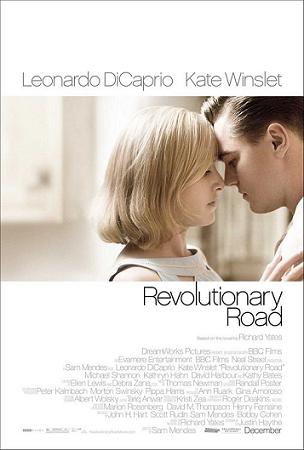

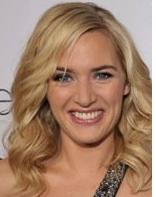
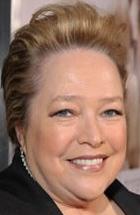
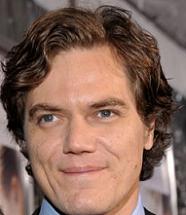
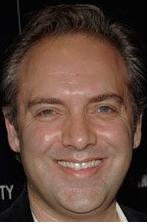
In Revolutionary Road, directed by Sam Mendes and based on the book by Richard Yates, Leonardi DiCaprio and Kate Winslet play Frank and April Wheeler, a husband and wife whose marriage gradually deteriorates in the 1950's as they struggle with many issues. They both dream of escaping their suburban life and troubles by moving to Paris. Kathy Bates plays Helen, a real estate agent who sells them their suburban Connecticut home. Helen's mentally ill son, John (Michael Shannon) observes Frank and April's relationship much more keenly than they themselves even do. Sam Mendes has previously directed Jarhead, Road to Perdition and American Beauty for which he one a Best Director award at the Oscars. He has also directed many theater productions, namely, "The Cherry Orchard", "The Glass Menagerie", "Caberet", and "The Blue Room". He's currently married to Kate Winslet. It was a real privilege to interview him together with Leonardo DiCaprio, Kate Winslet, Kathy Bates and Michael Shannon. Paramount Vantages releases Revolutionary Road on December 26th, 2008 (limited), January 9th, 2009 (wider) and January 23rd (nationwide). NYC MOVIE GURU: What was it like to work with each other again after Titanic? LD: Kate and I have remained close friends for many years since Titanic. I think weíve both been actively looking for the right project to do. We knew that we had to try something completely unique and it was just about finding that project. I felt very fortunate to be chosen for it. The truth of the matter is that [Kate] has always had that pursuit of excellence within the character that she plays. Sheís got an unbelievable work ethic that she has retained since I knew her in our early 20ís. Since Titanic, she has done quite a bit of movies as have I, and we donít approach the filmmaking experience like we did in our early 20ís. We donít look at the director or the producer involved as the parental figures. In our teenage years, we were constantly looking for that guidance. I think we come into movies now as, kind of, equal pieces to the puzzle and bring our own ideas of what we think the movie should be. For lack of a better term, weíre more like adults, whatever that word means. We got to live this tiny microcosm of a life during the four-month [filming] period, almost like real time. It was bizarre because we shot the beginning sequences in the beginning of [filming] and there was so much unsaid throughout the first two-third of the film, so much pent-up within these characters, that when the kettle, sort-of, explodes at the end of the movie, all that stuff felt ultra-realistic. When those scenes finally happened, that was something that I was really looking forward to because [Kate and I] were brutally honest onscreen. We trust each other in that regard. KW: Heís nicer and funnier than he was and heís a better actor than he was. There was a surprise every day. I just loved so much playing some of the difficult scenes with Leo knowing that, because of the trust that we have as two people whoíve known each other for so long, there were no boundaries. That was a real gift to have. [I had] to stop myself from crying because I was seeing someone for whom I have so much respect. [He was] doing things as an actor that Iíve never seen him do before. [He] morphed his face into positions that Iíve never seen him morph his face into before as an actor and as a person. There were many moments like that pretty much every single day. NYC MOVIE GURU: What do you think is the root of Frank and Aprilís marital problems? KW: Itís a combination of many things, but it has more to do with the fact that they have forgotten to communicate with each other after some time. When April turns around and says to [Frank], ďWe canít go on pretending that this is the life that we wanted,Ē they are then truly forced to question exactly that. For April, itís very clear that this isnít the life that she expected for herself. Frank is then forced to question it, too. Itís at that point that they realize that maybe they arenít the people that they were when they first and that they want different things from life. April is ultimately so determined to find happiness to feel something again other than what she has. Sheís prepared to risk everything in order to get that, which, to me, is a very heroic act. LD: My character, [Frank], on the other hand, is very cowardly, which is what makes it fun about playing him. Ultimately, heís the product of his environment and doesnít have the courage to manifest any sort of tangible change in his life. On the one hand, April wants to risk everything for a new opportunity or to pursue the dreams she once had of what she wanted her life to be. Ultimately, my character wanted to conform to [his] environment. NYC MOVIE GURU: What does the city of Paris represent for Frank and April? LD: The idea of what Paris was to them was an opportunity that could or could not have resulted in something positive or tangible. KW: For April, Paris represents possibility, change and something to hope for. The notion that she would have to live her life without possibility is just the kiss of death [for her]. NYC MOVIE GURU: Do you consider April to be a heroin? KW: I feel that April is a heroin. This is a woman who has been taken to an emotional brink in her pursuit of happiness. I think it literally set her mad, I really do. In giving herself an abortion, I donít believe that she was intending to kill herself, but she knew that it was a very big risk. Thereís something very courageous and stoic about that. Itís a fine line. Itís very difficult to translate those two things simultaneously. LD: Whatís interesting about the novel and the way that [Richard] Yates writes all of these characters is that the sympathy shifts constantly throughout the course of the book, where you think that Frank is, sort of, despicable towards the beginning for cheating on his wife and then at the end you realize that heís the one thatís trying to salvage the relationship. Whoís a hero? Whoís not a hero? I donít know. I just loved playing a character who slightly felt short of his ambitions. It was just a compelling thing to do. He just did not have the courage at the end of the day to follow through with the life he wanted. He would be happier just conforming to his existence. NYC MOVIE GURU: What was it like working with director Sam Mendes? LD: I feel like [Sam Mendes] really attacked this like he would a theater production. He realized that this was an ensemble piece that depended so much on the actors and listened to all of our ideas endlessly in the rehearsal process. He realized very early on that we would have a lot of questions about our characters [regarding] their true intentions. He let us unleash a lot of that. We got to express all of our doubt and disbeliefs about what our characterís intentions were and what we felt. He listened to a lot of that and asked us very penetrating questions. It gave me all the subtext that I needed. KB: We had proper rehearsals and got to sit around a table to talk to one another. We got to bring the elements of the book in and bring things back in that we lost and take things out that we felt didnít work. We really go to push it around like a piece of clay. That was due to Sam [Mendes] and heís absolutely brilliant. Heís so articulate and he really knows how to work with each of us and how to make each of us feel like weíre very special. Itís been a long, long time since Iíve been that excited about coming to work and a long, long time since Iíve felt that satisfied about what I had been able to accomplish in the film. MS: During the production, Sam [Mendes] would sit by the monitor and take notes like a theater director, which I had never seen before. He came over after one take and said, ďYou know, Mike, Iíve got eight things that I want you to do. Can you remember them?Ē Then he told me all eight of them and he asked, ďCan you remember them?Ē and I replied, ďNo. Tell me again.Ē And then he told it to me again and we went off to do the take and then he said, ďI think you remembered all eight of them.Ē I think that was probably my biggest sense of accomplishment. I think theater directors tend to me more focused on character development. NYC MOVIE GURU: What particular scene from Revolutionary Road was the most challenging for you? KW: The breakfast scene that we shot at the end of the film. I remember reading it on the page and thinking, ďHow the hell are we going to get through this?Ē Everything about that scene took me by surprise as far as the way it was lit in that incredibly stark, beautiful, naked way. Sam [Mendes] really steered us through that scene, through those very difficult emotions. Rhythmically, the scene is very, very delicate. I remember feeling very strongly that Leo and I were very much in Samís hands when we were shooting that scene because it was so difficult for us to have a, sort of, sixth sense of what we needed to be. All we knew was that we had to be very honest about every word that we were saying. We just had to trust in Sam so completely. NYC MOVIE GURU: What kind of a role do you think the 1950ís plays in the film? LD: To me, after having read the script and the novel, I thought [the 50ís] was a huge component. This was the era of prescription medication where people were becoming alcoholics and trying to have that iconic American family in the suburbs, which drove a lot of people nuts. As much as that was a product of the movie, as we were starting to film the movie, a lot of that was just stripped away. A lot of that just became a backdrop to the emotional drama of these characterís lives unraveling. NYC MOVIE GURU: Whatís the main driving force that attracts you to direct a particular film? SM: The thing that attracts me to a film is the central character, in this case [both April and Frank]. I find that I have been drawn to characters that are, in some ways, lost and have to find their way through life. Thatís been the case with all of the films Iíve made. The first movie Iíve made was intimate and this movie is intimate and the movie I made since Revolutionary is also intimate. The two movies that I made in between were much more concerned with style and using the bells and whistles of movie-making. Iíve been drawn lately to the kind of work that Iíve done in the theater and Iím enjoying it. Having proved that my film work can be totally different than my stage work, I feel much less concerned with the difference between the two as less worried about making a point about that. NYC MOVIE GURU: What makes Revolutionary Road ultimately stand out as a tragedy? SM: At the end of the day, any great tragedy, like On the Waterfront or A Streetcar Named Desire, leaves you feeling uplifted, strangely because youíre not living the life that you see in front of you. You find a determination to not do what youíve just seen. The idea that tragedy is depressing is wrong, I think. Yes, itís sad and serious, but at the end of the day, it makes you feel more alive. Main Page Interviews Menu Alphabetical Menu Chronological Menu ______________________________________________________ |
The NYC Movie Guru
themovieguru101@yahoo.com
Privacy Policy